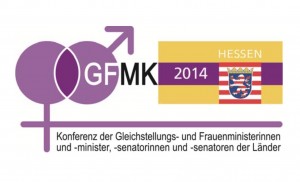 In October 2014 the Conference of the German Ministers for Women and Equalities affirmed that interventions that modify the sex characteristics of an intersex person constitute human rights violations referenced in Article 2. Abs. 2 Satz 1 GG of the German Constitution. The Conference of the German Ministers for Women and Equalities has furthermore equated surgeries with the express aim of modifying the appearance of intersex people’s genitals with Female Genital Mutilation and criticises the use of „the best interest of the child“ as a smokescreen in order to justify the medical intervention on intersex children as „necessities to conform“.
In October 2014 the Conference of the German Ministers for Women and Equalities affirmed that interventions that modify the sex characteristics of an intersex person constitute human rights violations referenced in Article 2. Abs. 2 Satz 1 GG of the German Constitution. The Conference of the German Ministers for Women and Equalities has furthermore equated surgeries with the express aim of modifying the appearance of intersex people’s genitals with Female Genital Mutilation and criticises the use of „the best interest of the child“ as a smokescreen in order to justify the medical intervention on intersex children as „necessities to conform“.
In order to protect the concerned persons the GFMK deems it necessary to regulate by law the preconditions for operations and medical treatment which determine or clarify the sex of minors, especially with regard to the consent of the concerned persons and their parents. This also gives legal certainty and does away with conflicting interpretations of the law. For instance, family law already prohibits caretakers to consent to the sterilization of a child (§ 1631c BGB). Furthermore, parents legally do not have the right to consent to the removal or circumcision of the clitoris of their daughters because genital mutilation is a punishable offence (§ 226a StGB). In reality however, this legal framework does not protect intersexual children from operations which have sterilizing effects or change the minor’s genitals without either their consent or any medical indication. A similar protection standard is necessary for intersexual children. They are in need of protection, especially since these procedures generally affect the core of their identity, are mostly irreversible and are justified as allegedly preventive (to shield the child from supposed psychosocial harm in the future the assimilation to the norm is deemed necessary, under the guise of “the best interest of the child”).
24. Konferenz der Gleichstellungs- und Frauenministerinnen und -minister, -senatorinnen und – senatoren der Länder (GMFK) (2014): Top 8.1: Rechte intersexueller Menschen wahren und Diskriminierung beenden – insbesondere Schutz der körperlichen Unversehrtheit, p. 52 and 53
Resolution of the german ministers conference 2014

